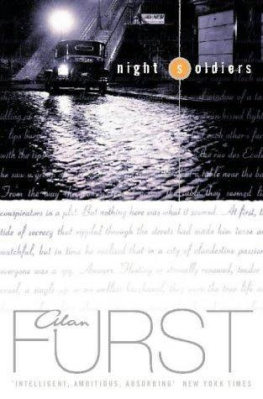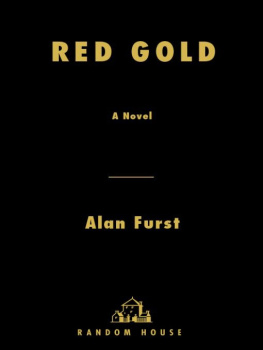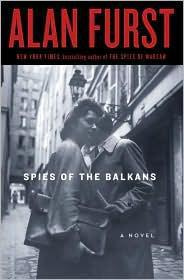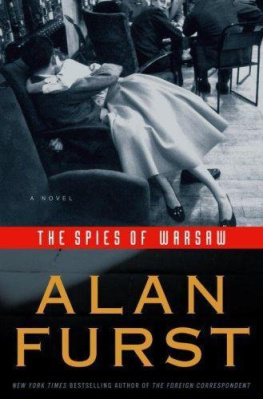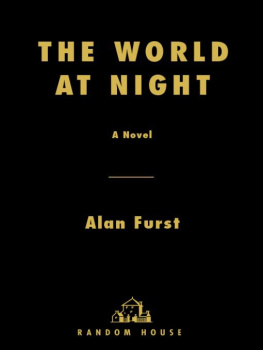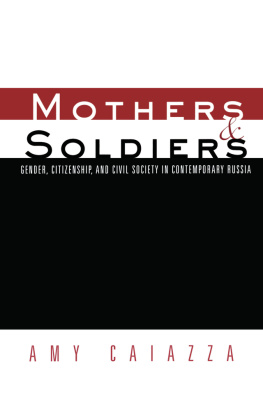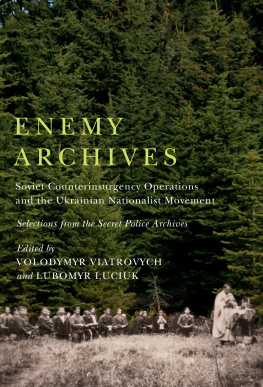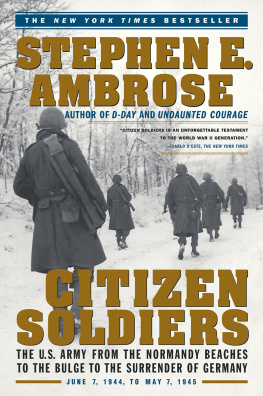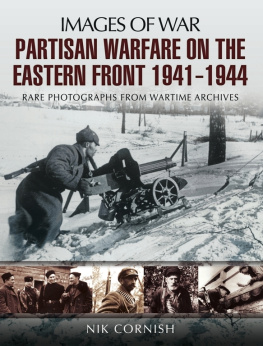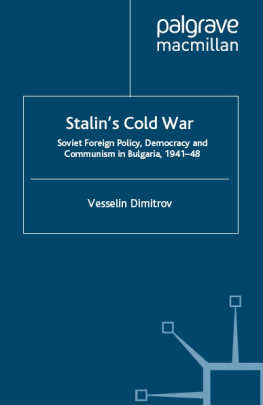Night Soldiers
by Alan Furst
Alan Furst
Night Soldiers
First published in 1988
Push out a bayonet. If it strikes fat, push deeper. If it strikes iron, pull back for another day.
-V. I. Lenin, May 1922
Executive Order g6st
TERMINATION OF THE OFFICE OF STRATEGIC SERVICES (OSS)
The Secretary of War shall, whenever he deems it compatible with the national interest, discontinue any activity transferred by this paragraph and wind up all affairs relating thereto.
-Harry S. Truman September 20, 1945
Levitzky's Geese
In Bulgaria, in 1934, on a muddy street in the river town of Vidin, Khristo Stoianev saw his brother kicked to death by fascist militia.
His brother was fifteen, no more than a blameless fool with a big mouth, and in calmer days his foolishness would have been accommodated in the usual waysa slap in the face for humiliation, a few cold words to chill the blood, and a kick in the backside to send him on his way. That much was tradition. But these were _political__ times, and it was very important to think before you spoke. Nikko Stoianev spoke without thinking, and so he died.
On both sides of the riverRomania to the north and Bulgaria to the south--the political passion ran white hot. People talked of little else: in the marketplace, in the church, even--a mark of just how far matters had progressed--in the kitchen. _Something__has happened in Bucharest. Something has happened in Sofia.
Soon, something will happen here.
And, lately, they marched.
Torchlight parades with singing and stiff-armed salutes. And the most splendid uniforms. The Romanians, who considered themselves much the more stylish and urbane, wore green shirts and red armbands with blue swastikas on a yellow field. They thrust their banners into the air in time with the drum: we are the Guard of Archangel Michael. See our insigniathe blazing crucifix and pistol.
They were pious on behalf of both symbols. In 1933, one of their number had murdered Ion Duca, the prime minister, as he waited for a train at Sinaia railway station. A splinter group, led by a Romanian of Polish descent named Cornelius Codreanu, called itself the Iron Guard. Not to be outdone by his rivals, Codreanuhad recently assassinated the prefect of Jassy "because he favored the Jews." Political times, it seemed, brought the keenest sort of competitive instincts into play and the passionate reached deep within themselves for acts of great magnitude.
The men of Vidin were not quite so fashionable, but that was to be expected. They were, after all, Slavs, who prided themselves on simplicity and honesty, while their brethren across the river were of Latin descent, the inheritors of a corner of the Roman Empire, fancified, indolent fellows who worshiped everything French and indulged themselves in a passion for the barber, the tailor, and the gossip of the cafes. Thus the Bulgarian marchers had selected for themselves a black and olive green uniform which was, compared with Romanian finery, simple and severe.
Still, though simple and severe, they were _uniforms,__ and the men of Vidin were yet at some pains, in 1934, to explain to the local population how greatly that altered matters.
It was a soft autumn evening, just after dusk, when Nikko Stoianev called Omar Veiko a dog prick. A white mist hung in the tops of the willows and poplars that lined the bank of the river, clouds of swallows veered back and forth above the town square, the beating of their wings audible to those below. The Stoianev brothers were on their way home from the baker's house. Nikko, being the younger, had to carry the bread.
They were lucky to have it. The European continent lay in the ashes of economic ruin. The printing presses of the state treasuries cranked out reams of paper currencyshowing wise kings and blissful martyrs--while bankers wept and peasants starved. It was, certainly, never quite so bad as the great famines of Asia. No dead lay bloated in the streets. European starvation was rather more cunning and wore a series of clever masks: death came by drink, by tuberculosis, by the knife, by despair in all its manifestations. In Hamburg, an unemployed railway brakeman took off his clothes, climbed into a barrel of tar, and burned himself to death.
The Stoianevs had the river. They had fished, for carp and pike, sturgeon and Black Sea herring, for generations. They were not wealthy, but they did earn a few leva. That meant the Stoianev women could spend their days mending lines and nets and the family could pay the Braunshteins, in their flour-dusted yarmulkes, to do the baking. They had, frankly, a weakness for the Braunshtein bread, which was achieved in the Austrian manner, with a hard, brown crust. Most of their neighbors preferred the old-fashioned Turkish loaf, flat and round in the Eastern tradition, but the Stoianev clan looked west for their bread, and their civilization. They were a proud, feisty bunchsome said much too proud--with quick tempers. And they were ambitious; they meant to rise in the world.
Much too ambitious, some thought.
A time might just come, and come fairly soon, when the Stoianevs would have to bow the headwho were _they,__ one might ask, to have their damned noses stuck so high in the air? After all, had not the eldest son of Landlord Veiko sought the hand of the eldest Stoianev daughter? The one with the ice-blue eyes and thick black hair. And had he not been refused? A shameful slight, in the watchful eyes of Vidin. The Veiko were a family of power and position; property owners, men of substance and high rank. Any fool could see that.
What fools could and could not see became something of a topic in Vidin following Nikko Stoianev's death. A few leading citizens, self-appointed wise men and local wits, who read newspapers and frequented the coffeehouse, asked each other discreetly if Nikko had not perhaps seen the wrong Veiko. That is, _Landlord__ Veiko. For Landlord Veiko was not in the town square that autumn evening.
Colonel Veiko was.
In his black and olive gren uniform, marching at the head of the Bulgarian National Unionall eighteen of them present that night. You see, the wise men told each other, to call a landlord a dog prick was to risk a slap in the face for humiliation, a few cold words to chill the blood, and a kick in the backside to send you on your way. That much was tradition. It had happened before. It would happen again. But to say such things to a _colonel.__ Well, that was another matter altogether, was it not.
Omar Veiko, in either manifestation, landlord or colonel, was a man to be reckoned with in Vidin. A man whose studied effeminacy was a covert tribute to his power, for only a very powerful man raised neither voice nor fist. Only a very powerful man could afford to be so soft, so fussy, so plump, so fastidious. It was said that he dined like a cat.
This Veiko had a mustache, a sharp, stiff, well-waxed affair that shone jet black against his cream-colored skin. He was a short man who stood on his toes, a fat man who sucked in his stomach, a curly-haired man who oiled his curls until they brushed flat. A man, obviously, of some considerable vanity and, like most vain men, a close accountant of small insults. A note of sarcasm in the voice, a glance of ill-concealed anger, a rental payment slapped overhard on the wooden desk. All such sins were entered in a ledger, no less permanent for being kept in Veiko's razor-sharp memory rather than on bookkeeper's pages. It was, in fine, the Turkish style: an effete, polished surface just barely concealing interior tides of terrible anger. An Eastern tactic, of great antiquity, meant to frighten and intimidate, for Omar Veiko's most urgent desire on this earth was that people be frightened of him. He lived on fear. It set him above his fellows, content to live out their days animated by less ambitious cravings.

